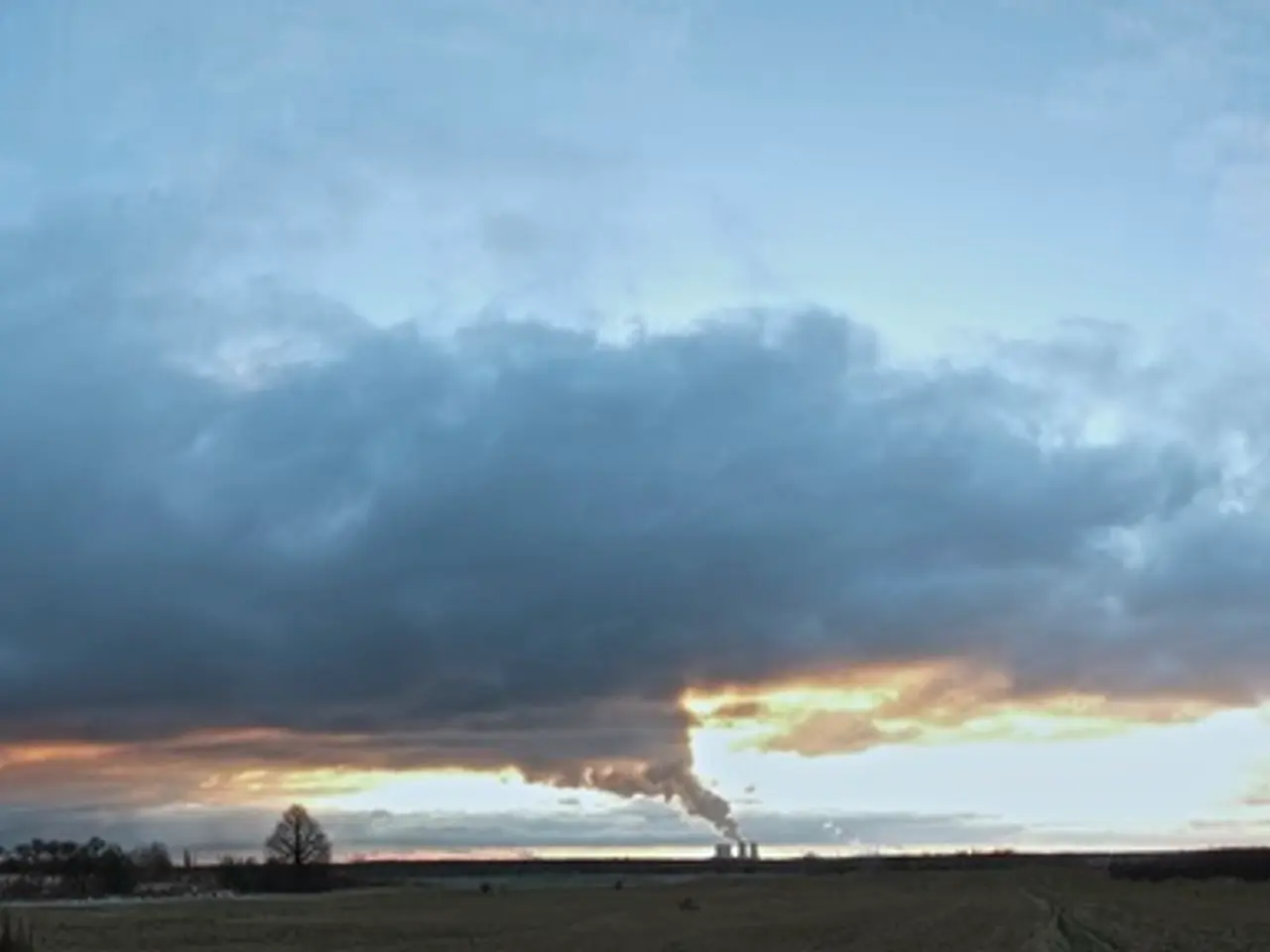Persists Climate Research by American Scholars Despite Absence of Federal Funding for Crucial World Temperature Reports
In the face of authoritarian threats, a group of international scientists, including several from the United States, are networking to establish independent, distributed systems for storing and sharing scientific information. This initiative aims to safeguard science and its critical role in global climate policy.
Rutgers University human-ecology professor Pamela McElwee, who helped coordinate the nomination process for U.S. scientists after the U.S. Department of State canceled the official federal process, is at the forefront of this movement. McElwee, disheartened by the current political climate in the U.S., questions the purpose of being a scientist in a country that disregards the rule of law and the truth of scientific experimentation.
Despite the challenges, the U.S. continues to contribute significantly to the Intergovernmental Panel on Climate Change (IPCC) reports. While the number of U.S. scientists working on the IPCC reports has decreased from 210 during the panel's 5th assessment cycle to 46 in the current cycle, there are still more Americans or scientists with dual citizenship and U.S. university affiliations contributing to the reports than from any other country.
The IPCC, the United Nations body responsible for assessing climate science and issuing reports every three to five years to guide government climate policies, has chosen 46 American researchers as authors for the upcoming three main global climate reports. Katherine Calvin, a former NASA chief scientist and senior climate adviser, is among the U.S. scientists chosen as authors. She will co-chair one of the three main assessment groups.
Calvin will help guide the structure and direction of the entire climate mitigation working group, which includes 222 scientists, including 15 other U.S. climate researchers. The first report in this assessment cycle on climate and cities is due in 2027, and there are five U.S. authors involved.
International collaboration remains strong, with U.S. participation, and science is becoming increasingly global and inclusive of Indigenous knowledge. The AGU and the American Meteorological Society have teamed up to publish a collection of papers to update information from a National Climate Assessment formerly compiled and issued by the federal government but canceled by the Trump administration.
However, the threats to scientific integrity are very real, especially in the United States. The current administration is considering rewriting existing reports that have met all scientific standards for accuracy. Michael Mann and Peter Hotez have co-authored a new book titled "Science Under Siege: How to Fight the Five Most Powerful Forces that Threaten Our World", scheduled for release in early September. The book warns of the threats posed by political actors who spread disinformation on climate science and vaccine science, undermining public trust in science and government and threatening democracy itself.
McElwee sees both hopeful and troubling signs for science in the future, noting the erosion of democratic norms in the U.S. She believes that researchers in relatively safe positions with academic tenure should step forward first to protect scientific integrity. The U.S. science community is organizing at other levels, including coordinating a response to a climate report issued by the U.S. Department of Energy.
Despite the lack of federal funding, the U.S. authors have been able to use philanthropic support to attend lead author meetings in person. The story is published by a 501c3 nonprofit organization, with donations from readers funding every aspect of their work.
In conclusion, the U.S. scientific community is rallying to protect climate science amidst threats to democratic norms. The IPCC's influence on global climate policy increased with its 2014 report, which was the scientific basis for the Paris climate agreement's goal of limiting warming. As the world continues to grapple with climate change, the importance of scientific integrity and international collaboration cannot be overstated.
Read also:
- Nightly sweat episodes linked to GERD: Crucial insights explained
- Antitussives: List of Examples, Functions, Adverse Reactions, and Additional Details
- Asthma Diagnosis: Exploring FeNO Tests and Related Treatments
- Unfortunate Financial Disarray for a Family from California After an Expensive Emergency Room Visit with Their Burned Infant








